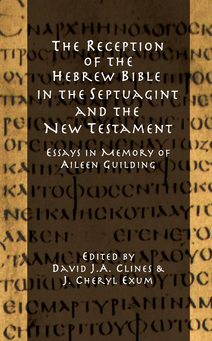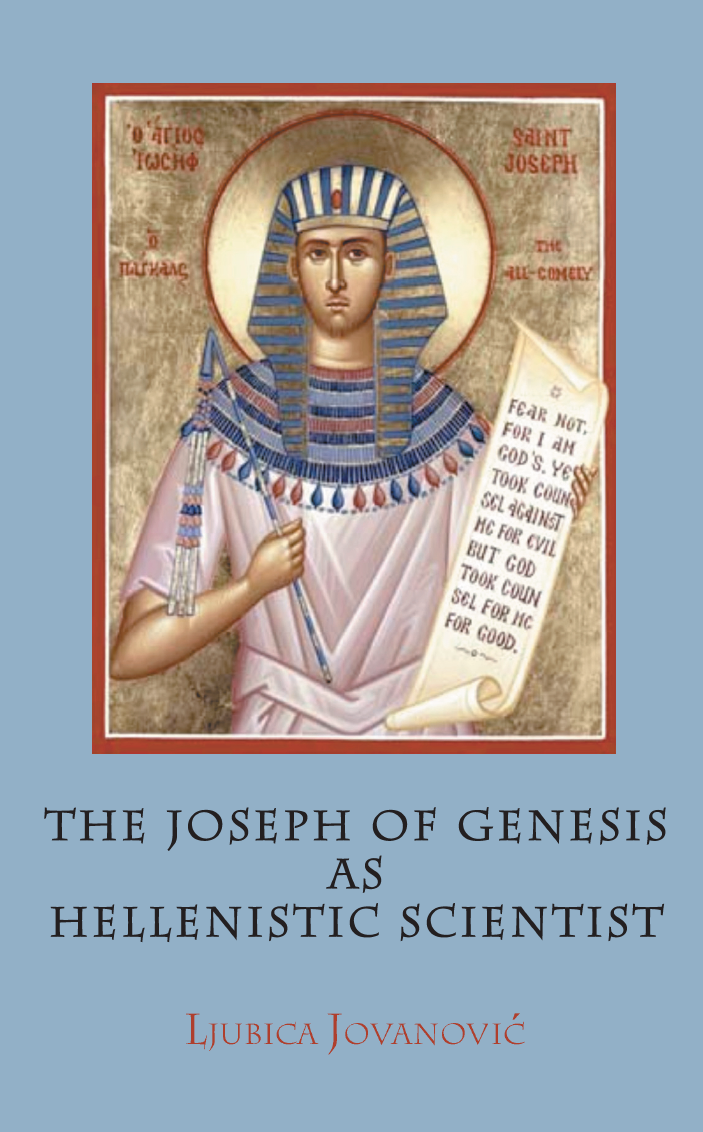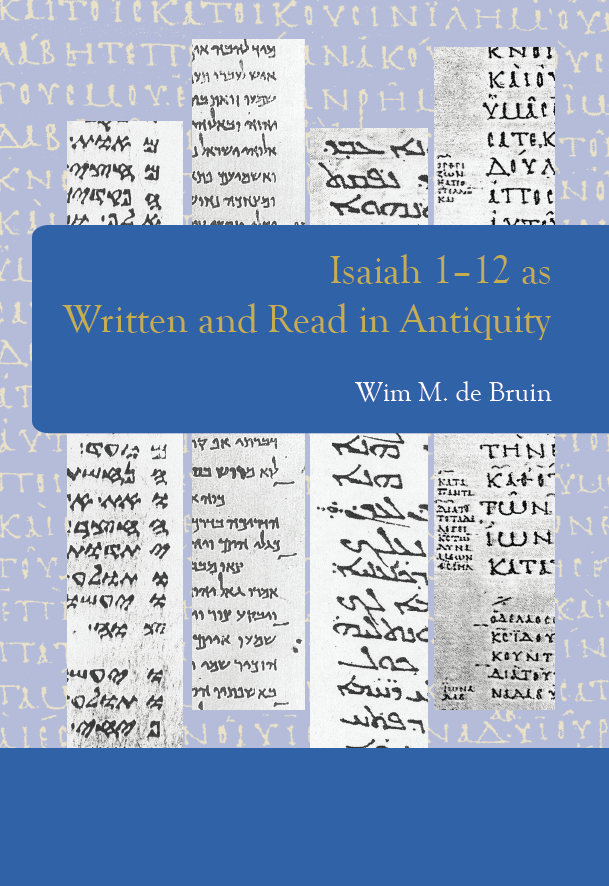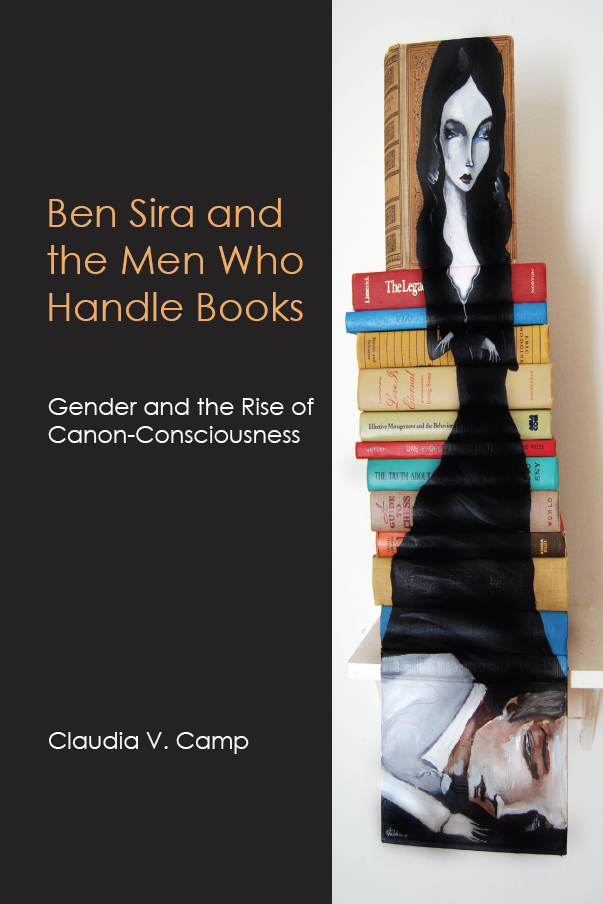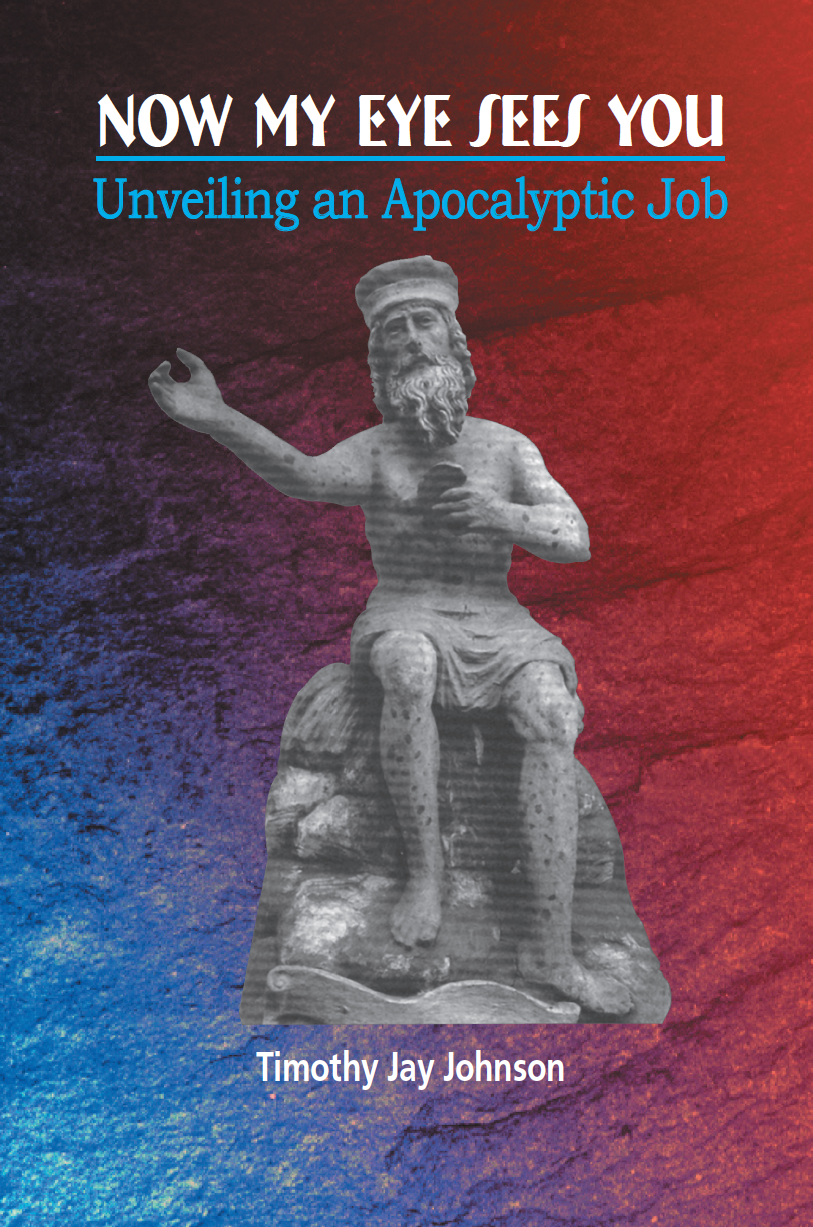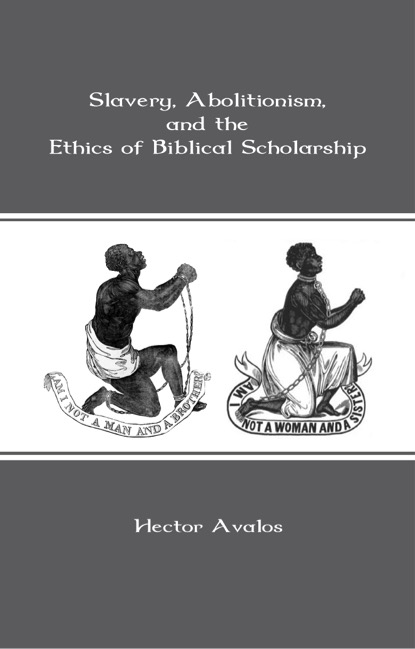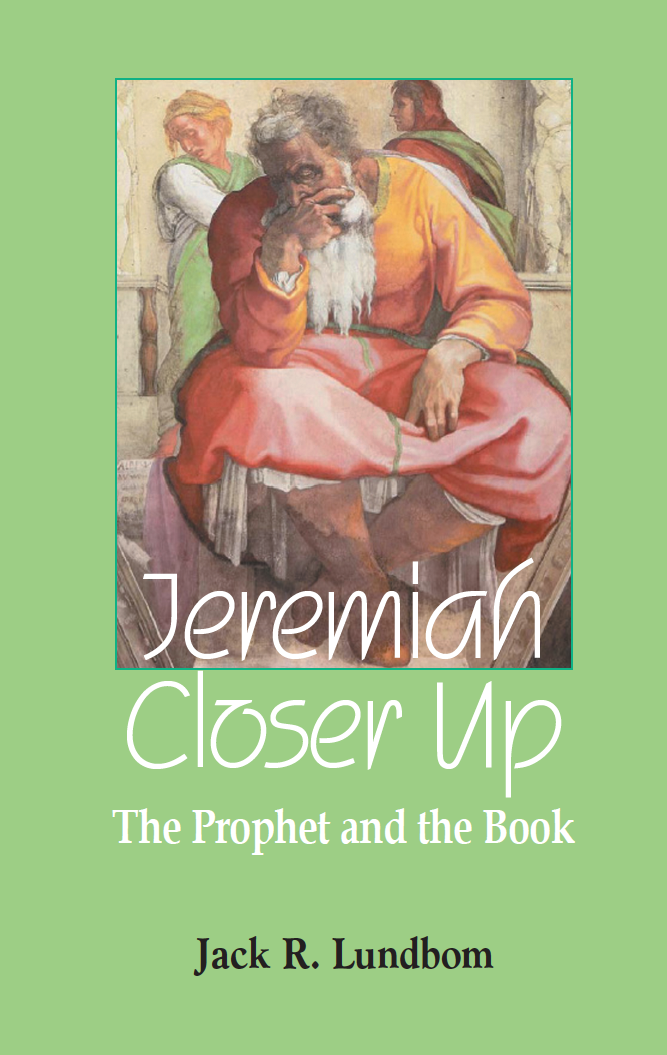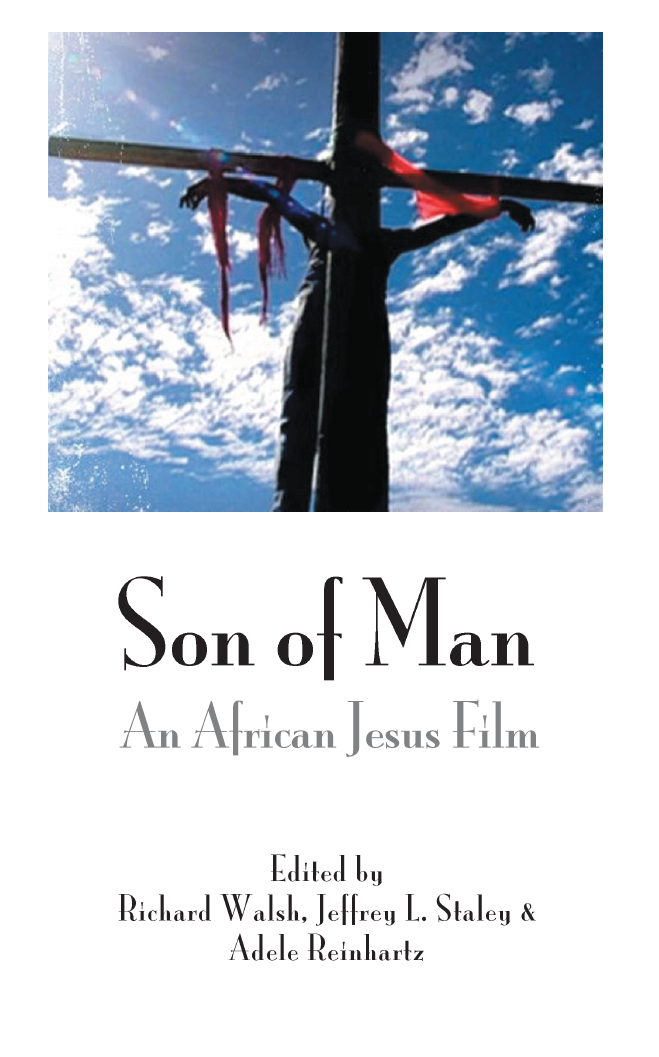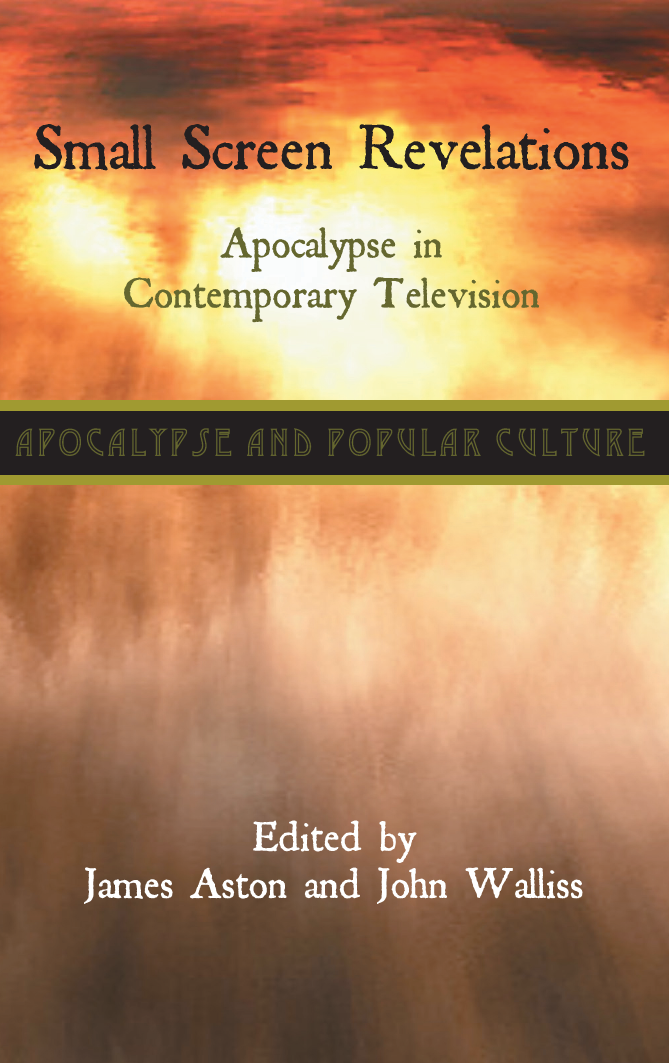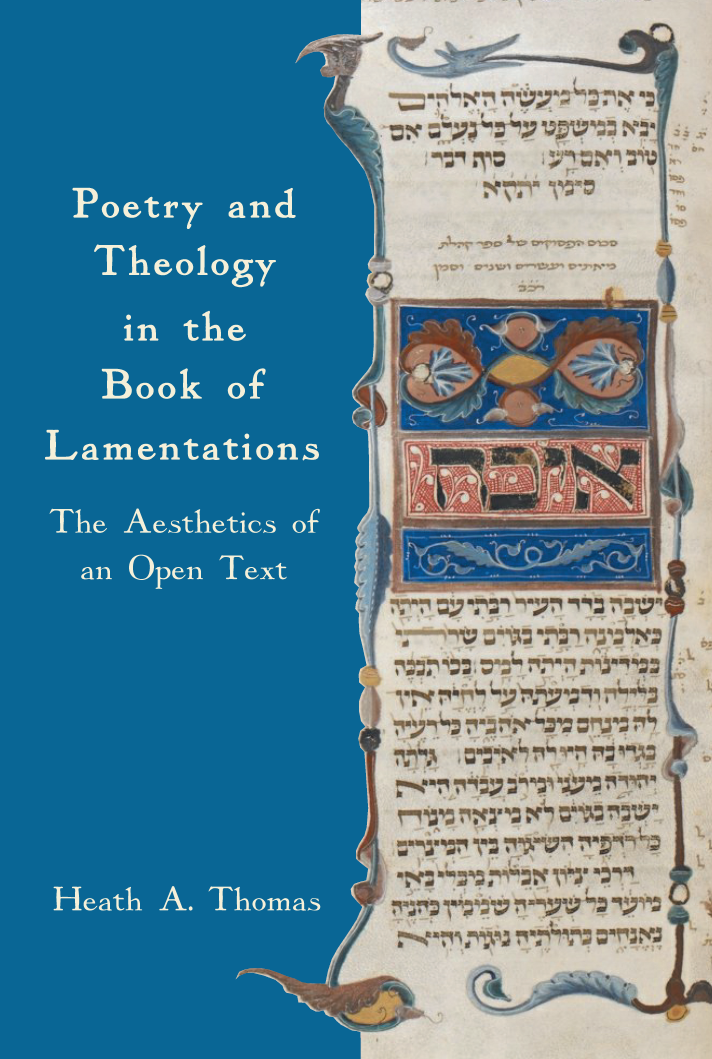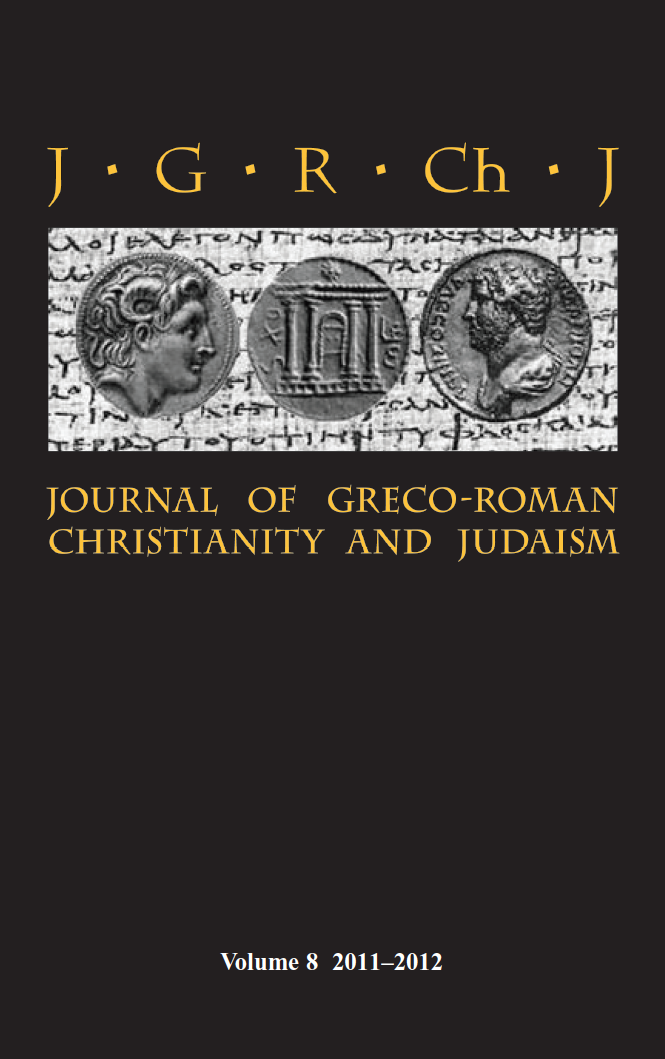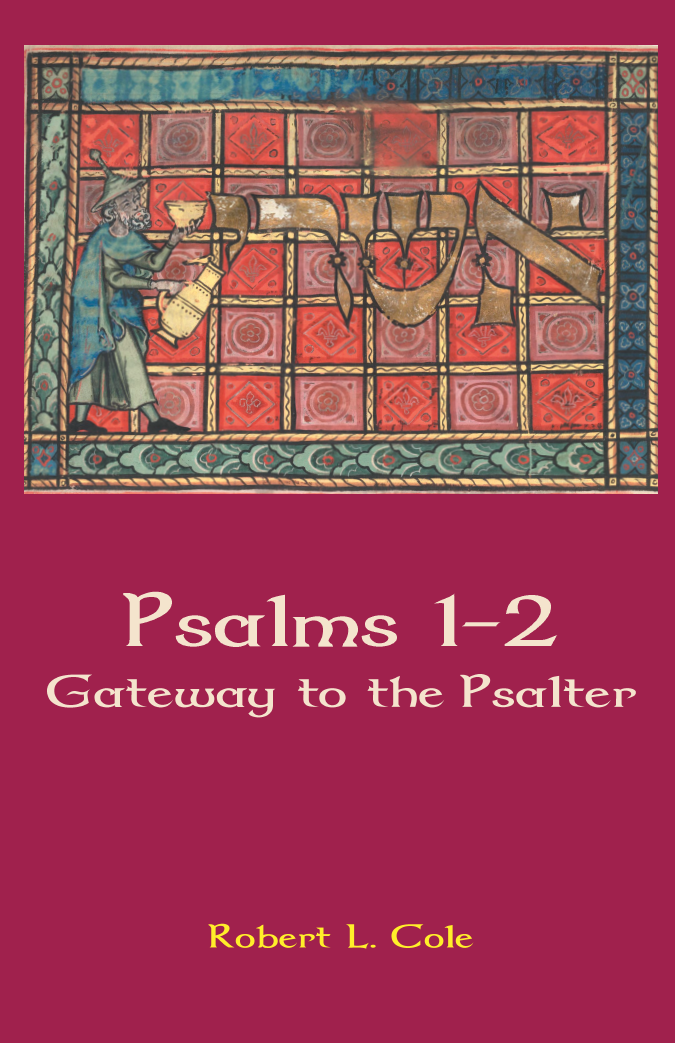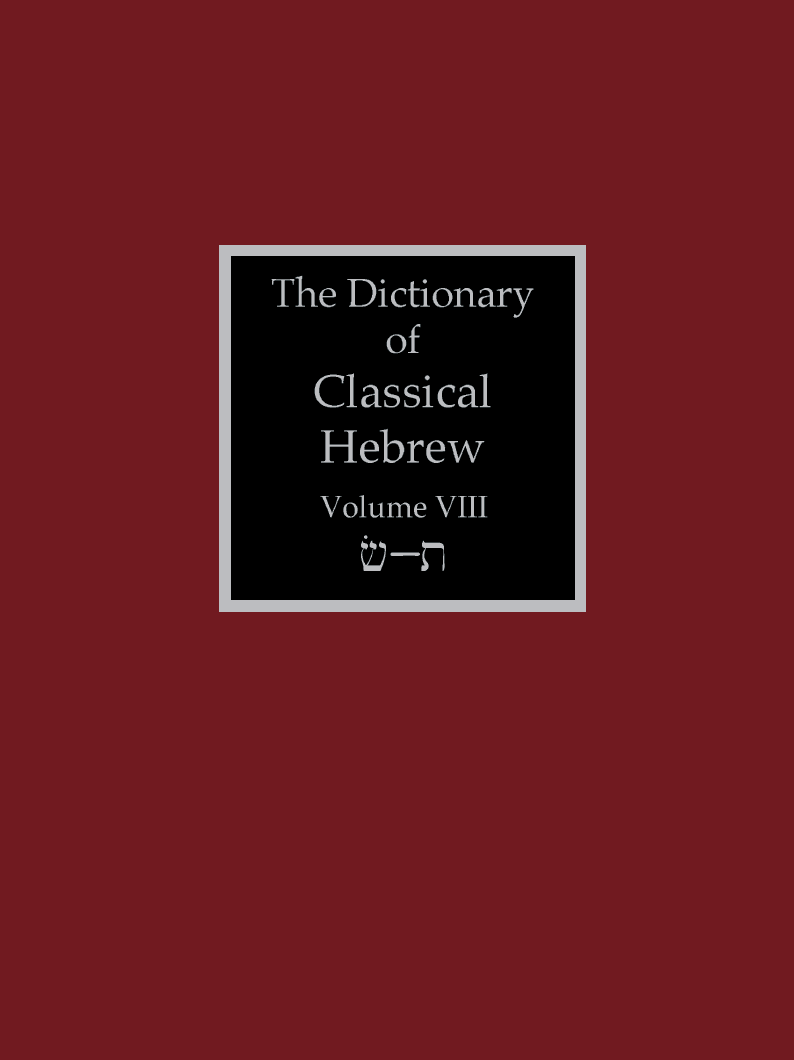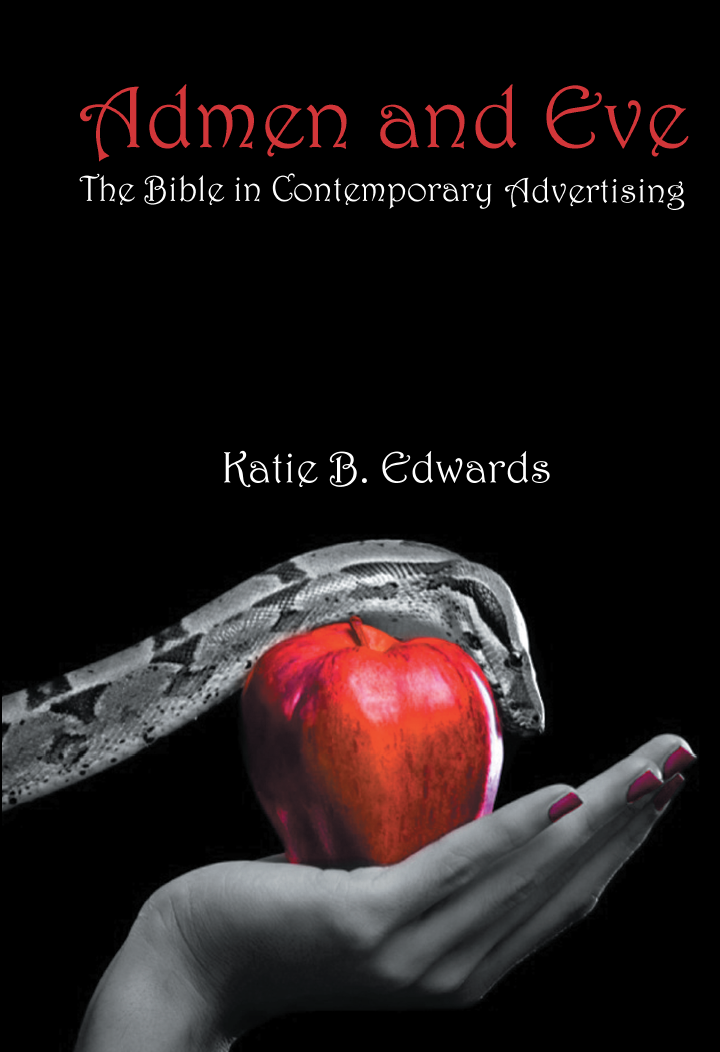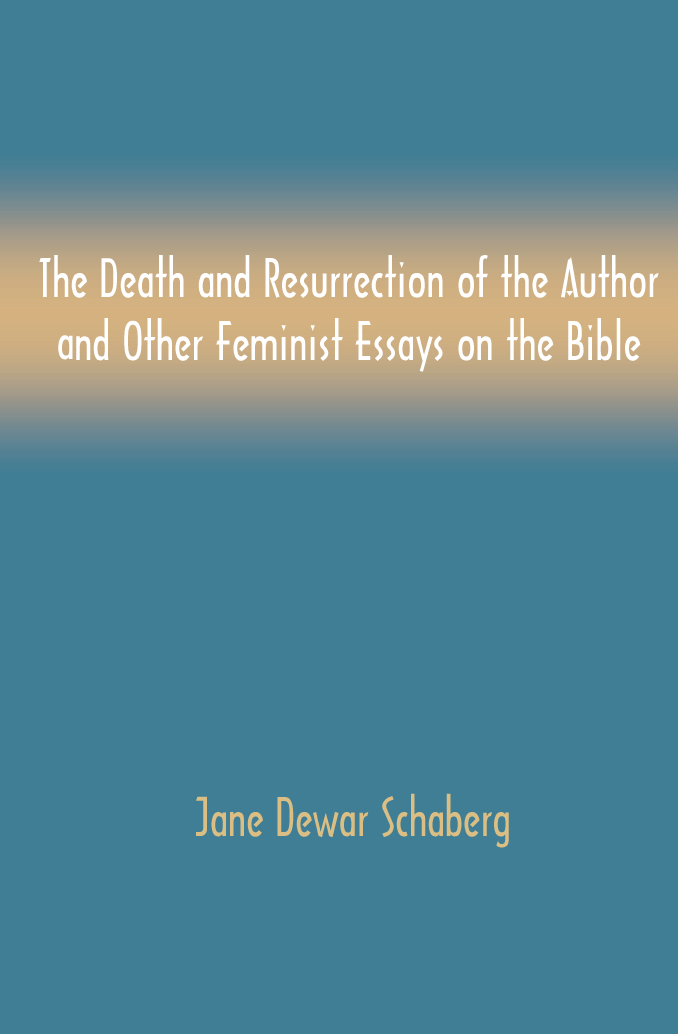The Sacrifice of Isaac: The Reception of a Biblical Story in Music
Published: Aug 2013
£60.00
The biblical story of the sacrifice of Isaac (Genesis 22), or the Akedah in Hebrew tradition, has inspired composers, artists, writers, and dramatists down through the centuries to produce some of the greatest musical, artistic, literary, and dramatic masterpieces the world knows today. This book explores the reception of Genesis 22 in five compositions that not only have been influential in the history of classical art music but also present some of the most insightful and distinctive interpretations of the biblical story. Spanning more than four hundred years, and stemming from a variety of musical genres, the works selected include an oratorio latino by Giacomo Carissimi, the 'Father of Oratorio'; an oratorio volgare by the Bohemian Josef Mysliveček; a canticle, and a movement from the War Requiem of the eminent British composer Benjamin Britten; and a cantata by the Jewish American composer Judith Lang Zaimont.
Dowling Long argues that, despite intensive exegetical work on Genesis 22 and the attention given to the concept of seeing in the narrative, biblical commentators have generally neglected the concept of hearing, which features prominently in the story's reception in music.
This book will be of interest to biblical scholars, musicologists, teachers of religious education and music education, as well as to readers interested in reception history. It is beautifully illustrated with 80 images of the sacrifice of Isaac in art, stone, needlework of tapestry and embroidery, and furniture together with photographs of composers and 86 musical excerpts.
The Sacrifice of Isaac: The Reception of a Biblical Story in Music
£60.00
The biblical story of the sacrifice of Isaac (Genesis 22), or the Akedah in Hebrew tradition, has inspired composers, artists, writers, and dramatists down through the centuries to produce some of the greatest musical, artistic, literary, and dramatic masterpieces the world knows today. This book explores the reception of Genesis 22 in five compositions that not only have been influential in the history of classical art music but also present some of the most insightful and distinctive interpretations of the biblical story. Spanning more than four hundred years, and stemming from a variety of musical genres, the works selected include an oratorio latino by Giacomo Carissimi, the 'Father of Oratorio'; an oratorio volgare by the Bohemian Josef Mysliveček; a canticle, and a movement from the War Requiem of the eminent British composer Benjamin Britten; and a cantata by the Jewish American composer Judith Lang Zaimont.
Dowling Long argues that, despite intensive exegetical work on Genesis 22 and the attention given to the concept of seeing in the narrative, biblical commentators have generally neglected the concept of hearing, which features prominently in the story's reception in music.
This book will be of interest to biblical scholars, musicologists, teachers of religious education and music education, as well as to readers interested in reception history. It is beautifully illustrated with 80 images of the sacrifice of Isaac in art, stone, needlework of tapestry and embroidery, and furniture together with photographs of composers and 86 musical excerpts.
The Reception of the Hebrew Bible in the Septuagint and the New Testament: Essays in Memory of Aileen Guilding
Published: July 2013
£50.00
Aileen Guilding was Professor of Biblical History and Literature in the University of Sheffield from 1959 to 1965, and was known especially for her monograph The Fourth Gospel and Jewish Worship: A Study of the Relation of St. John's Gospel to the Ancient Jewish Lectionary System (Oxford, 1960), which enjoyed a succès d’estime in its day as an exceptionally fascinating and learned book. She is celebrated in Sheffield as the first female professor in the University; she was also the first woman to hold a chair in theology or religion in the United Kingdom. After her death at the age of 94 a conference on themes relevant to her special interests was held in Sheffield as part of a meeting of the Society for Old Testament Study, and the papers read there are presented in this volume, published in the 101st year after her birth.
The Reception of the Hebrew Bible in the Septuagint and the New Testament: Essays in Memory of Aileen Guilding
£50.00
Aileen Guilding was Professor of Biblical History and Literature in the University of Sheffield from 1959 to 1965, and was known especially for her monograph The Fourth Gospel and Jewish Worship: A Study of the Relation of St. John's Gospel to the Ancient Jewish Lectionary System (Oxford, 1960), which enjoyed a succès d’estime in its day as an exceptionally fascinating and learned book. She is celebrated in Sheffield as the first female professor in the University; she was also the first woman to hold a chair in theology or religion in the United Kingdom. After her death at the age of 94 a conference on themes relevant to her special interests was held in Sheffield as part of a meeting of the Society for Old Testament Study, and the papers read there are presented in this volume, published in the 101st year after her birth.
The Joseph of Genesis as Hellenistic Scientist
Published: July 2013
£75.00
To today's confrontations between religion and science Jovanovic contrasts the vibrant collaboration that characterizes Jewish, Christian, and Islamic beginnings. Designation of the patriarch Joseph as both a dream interpreter and a diviner (Gen. 44.4, 15) is a specific example of biblical appropriation of the ancient Mediterranean understanding of cup divination and dream interpretation as among the scientific activities of its social, spiritual and academic elite.
Jovanovic argues that the image of Joseph as a Hellenistic scientist nourished the popularity of early Jewish and Christian literature on Joseph. The works of Josephus and Philo, Rabbinic midrashim, and the newly discovered The Ethiopic Story of Joseph, as well as Jubilees, The Testaments of the Twelve Patriarchs and Joseph and Aseneth, hold that Joseph's profession was that of a scientist of vision. The interpretation of the symbolic images in dreams and cup divination was a scientific method of communication with the divine and of prediction of the future, which Jovanovic calls 'revelation by visual effects'.
Joseph's image as an Egyptian academic provoked varied responses in Hellenistic Jewish circles. The dismay expressed by Jubilees and Philo arose from Joseph's perceived betrayal of religious and traditional values. The acclamation of Josephus and The Ethiopic Story of Joseph demonstrates that a number of Hellenistic Jews believed that their creative integration into the vibrant Hellenistic culture could be successful and deepen their own Jewish identity.
While previous scholarship has focused on representations of Joseph either as an ethical model or as a type of Christ, this is the first major work that explores the image of Joseph as an ancient scholar and spiritual expert.
The Joseph of Genesis as Hellenistic Scientist
£75.00
To today's confrontations between religion and science Jovanovic contrasts the vibrant collaboration that characterizes Jewish, Christian, and Islamic beginnings. Designation of the patriarch Joseph as both a dream interpreter and a diviner (Gen. 44.4, 15) is a specific example of biblical appropriation of the ancient Mediterranean understanding of cup divination and dream interpretation as among the scientific activities of its social, spiritual and academic elite.
Jovanovic argues that the image of Joseph as a Hellenistic scientist nourished the popularity of early Jewish and Christian literature on Joseph. The works of Josephus and Philo, Rabbinic midrashim, and the newly discovered The Ethiopic Story of Joseph, as well as Jubilees, The Testaments of the Twelve Patriarchs and Joseph and Aseneth, hold that Joseph's profession was that of a scientist of vision. The interpretation of the symbolic images in dreams and cup divination was a scientific method of communication with the divine and of prediction of the future, which Jovanovic calls 'revelation by visual effects'.
Joseph's image as an Egyptian academic provoked varied responses in Hellenistic Jewish circles. The dismay expressed by Jubilees and Philo arose from Joseph's perceived betrayal of religious and traditional values. The acclamation of Josephus and The Ethiopic Story of Joseph demonstrates that a number of Hellenistic Jews believed that their creative integration into the vibrant Hellenistic culture could be successful and deepen their own Jewish identity.
While previous scholarship has focused on representations of Joseph either as an ethical model or as a type of Christ, this is the first major work that explores the image of Joseph as an ancient scholar and spiritual expert.
Isaiah 1-12 as Written and Read in Antiquity
Published: Jun 2013
£60.00
This scrupulous study foregrounds an often forgotten element of the Masoretic texts of these important prophetic chapters: the Masoretic systems of indicating smaller and larger parts of the text through the use of spaces and accents.
The Masoretes were not only transmitters of the biblical text but also exegetes and interpreters of it, so taking the Masoretic text divisions seriously should be an essential part of our contemporary exegesis. That is not to say, however, that the Masoretic text divisions should be followed uncritically; de Bruin compares the Masoretic delimitation of textual units with his own structural analysis of the text based on its internal characteristics, as well as with the text division in other ancient manuscripts of Isaiah 1 —12. He concludes that such comparisons show the reliability of the Masoretic system and its value for modern exegetes.
Finally, the multitude of data reported here on text division in ancient Hebrew, Greek, Syriac and Latin witnesses, including commentaries of the Church Fathers Eusebius and Jerome, and the discussion of their interpretative consequences, make this book a treasure house of information for every exegete and Bible reader seeking to gain a clearer insight into Isaiah 1 —12.
Isaiah 1-12 as Written and Read in Antiquity
£60.00
This scrupulous study foregrounds an often forgotten element of the Masoretic texts of these important prophetic chapters: the Masoretic systems of indicating smaller and larger parts of the text through the use of spaces and accents.
The Masoretes were not only transmitters of the biblical text but also exegetes and interpreters of it, so taking the Masoretic text divisions seriously should be an essential part of our contemporary exegesis. That is not to say, however, that the Masoretic text divisions should be followed uncritically; de Bruin compares the Masoretic delimitation of textual units with his own structural analysis of the text based on its internal characteristics, as well as with the text division in other ancient manuscripts of Isaiah 1 —12. He concludes that such comparisons show the reliability of the Masoretic system and its value for modern exegetes.
Finally, the multitude of data reported here on text division in ancient Hebrew, Greek, Syriac and Latin witnesses, including commentaries of the Church Fathers Eusebius and Jerome, and the discussion of their interpretative consequences, make this book a treasure house of information for every exegete and Bible reader seeking to gain a clearer insight into Isaiah 1 —12.
Ben Sira and the Men Who Handle Books: Gender and the Rise of Canon-Consciousness
Published: May 2013
£50.00
What have women to do with the rise of canon-consciousness in early Judaism? Quite a lot, Claudia Camp argues, if the book written by the early second-century BCE scribe, Ben Sira, is any indication. One of the few true misogynists in the biblical tradition, Ben Sira is beset with gender anxiety, fear that his women will sully his honor, their shame causing his name to fail from the eternal memory of his people. Yet the same Ben Sira appropriates the idealized figure of cosmic Woman Wisdom from Proverbs, and identifies her with 'the book of the covenant of the most high God, the law that Moses commanded us'.
This, then, is Ben Sira's dilemma: a woman (Wisdom) can admit him to eternity but his own women can keep him out. It is Camp's thesis that these conflicted perceptions of gender are fundamental to Ben Sira's appropriation and production of authoritative religious literature, and that a critical analysis of his gender ideology is thus essential for understanding his relationship to an emerging canon. Ben Sira writes a book, and writes himself into his book, creating a possession into which he can sublimate his anxiety about the women he cannot truly possess and the God he cannot truly trust.
What is more, if Ben Sira can be considered representative of his scribal class and context, his work may also provide a window into aspects of the larger cultural process of canon building, including the question of whether we would have a canon at all —or have the canon we have —if the men in that particular patriarchal culture had not coded it in the gendered terms that Ben Sira did.
Ben Sira and the Men Who Handle Books: Gender and the Rise of Canon-Consciousness
£50.00
What have women to do with the rise of canon-consciousness in early Judaism? Quite a lot, Claudia Camp argues, if the book written by the early second-century BCE scribe, Ben Sira, is any indication. One of the few true misogynists in the biblical tradition, Ben Sira is beset with gender anxiety, fear that his women will sully his honor, their shame causing his name to fail from the eternal memory of his people. Yet the same Ben Sira appropriates the idealized figure of cosmic Woman Wisdom from Proverbs, and identifies her with 'the book of the covenant of the most high God, the law that Moses commanded us'.
This, then, is Ben Sira's dilemma: a woman (Wisdom) can admit him to eternity but his own women can keep him out. It is Camp's thesis that these conflicted perceptions of gender are fundamental to Ben Sira's appropriation and production of authoritative religious literature, and that a critical analysis of his gender ideology is thus essential for understanding his relationship to an emerging canon. Ben Sira writes a book, and writes himself into his book, creating a possession into which he can sublimate his anxiety about the women he cannot truly possess and the God he cannot truly trust.
What is more, if Ben Sira can be considered representative of his scribal class and context, his work may also provide a window into aspects of the larger cultural process of canon building, including the question of whether we would have a canon at all —or have the canon we have —if the men in that particular patriarchal culture had not coded it in the gendered terms that Ben Sira did.
From Judah to Judaea: Socio-Economic Structures and Processes in the Persian Period
Published: May 2013
Price range: £18.50 through £50.00
It has long been recognized that the Persian period is crucial to the history of the formation of the biblical corpora. The essays presented in this volume explore this critically important era, reconstructing the socio-economic shifts that took place as well as the religio-theological environment of the Judean community and its neighbours. The topics of this volume, sociological, archaeological and theological, include: ethnicities and administration in Persian-era Palestine (Yigal); the historical origin of the concept of the piety of the poor at Qumran (Ro); the development of the theological concept of Yhwh's punitive justice (Ro); social, cultural and demographic transformations in Persian-period Judah (Faust); changes in Judah and its neighbouring provinces in the fourth century BCE (Fantalkin and Tal); some Greek views of the Persian empire (Sano). The papers collected in this volume were presented at an international conference held at International Christian University (ICU) in Tokyo, February 17 —19, 2011, a testimony to the fruitfulness of this unusual Asian —Israeli scholarly dialogue.
From Judah to Judaea: Socio-Economic Structures and Processes in the Persian Period
Price range: £18.50 through £50.00
It has long been recognized that the Persian period is crucial to the history of the formation of the biblical corpora. The essays presented in this volume explore this critically important era, reconstructing the socio-economic shifts that took place as well as the religio-theological environment of the Judean community and its neighbours. The topics of this volume, sociological, archaeological and theological, include: ethnicities and administration in Persian-era Palestine (Yigal); the historical origin of the concept of the piety of the poor at Qumran (Ro); the development of the theological concept of Yhwh's punitive justice (Ro); social, cultural and demographic transformations in Persian-period Judah (Faust); changes in Judah and its neighbouring provinces in the fourth century BCE (Fantalkin and Tal); some Greek views of the Persian empire (Sano). The papers collected in this volume were presented at an international conference held at International Christian University (ICU) in Tokyo, February 17 —19, 2011, a testimony to the fruitfulness of this unusual Asian —Israeli scholarly dialogue.
Between Author and Audience in Mark: Narration, Characterization, Interpretation
Published: May 2013
Price range: £16.50 through £45.00
To hear, read, and interpret the Gospel of Mark is to become involved in the dynamic relationship between author (real or implied) and audience (implied or real). So we have learned from the 'literary turn' in biblical interpretation. But there remains another dynamic relationship in which we are of necessity involved: that of the literary and the historical questions surrounding the text. Clearly, multiple approaches are called for by anyone who wishes to claim a place in the on-going audience of the Gospel of Mark.
The first three essays in this volume move in different ways between real and implied Markan realities: from implied audience to real (ancient) audience, from real (contemporary, oral) narrator to implied (ancient, oral) narrator, and from implied audience to various real (or 'unimplied') audiences. The next three essays treat the central Markan reality of parable as it connects author, narrator, and audience in challenging ways. The final three essays concern the relation of Mark's characters among themselves or the relation of narrator and character, recognizing the complexity of characterization in the Gospel as a form of communication between author and audience.
Between Author and Audience in Mark: Narration, Characterization, Interpretation
Price range: £16.50 through £45.00
To hear, read, and interpret the Gospel of Mark is to become involved in the dynamic relationship between author (real or implied) and audience (implied or real). So we have learned from the 'literary turn' in biblical interpretation. But there remains another dynamic relationship in which we are of necessity involved: that of the literary and the historical questions surrounding the text. Clearly, multiple approaches are called for by anyone who wishes to claim a place in the on-going audience of the Gospel of Mark.
The first three essays in this volume move in different ways between real and implied Markan realities: from implied audience to real (ancient) audience, from real (contemporary, oral) narrator to implied (ancient, oral) narrator, and from implied audience to various real (or 'unimplied') audiences. The next three essays treat the central Markan reality of parable as it connects author, narrator, and audience in challenging ways. The final three essays concern the relation of Mark's characters among themselves or the relation of narrator and character, recognizing the complexity of characterization in the Gospel as a form of communication between author and audience.
Now My Eye Sees You: Unveiling an Apocalyptic Job
Published: May 2013
Price range: £16.50 through £50.00
This groundbreaking study on the book of Job is the first systematic effort to reveal and organize its apocalyptic impulses. Drawing on such scholars as John Collins, Christopher Rowland and Frank Moore Cross, Johnson argues that interpreting Job through the lens of apocalypse yields a coherent reading that is able to incorporate all of the seemingly disparate literary features of the book that historically stymie interpreters.
An apocalyptic reading of Job begins with the presence of three important revelations: Eliphaz's vision, the hymn to wisdom and the Yahweh speeches. A literary division following these revelations contributes to the book's overall emphasis, which is to persevere in the midst of suffering. Thorny questions such as the reason Elihu was not rebuked by God in the epilogue receive fresh treatment from an apocalyptic paradigm.
In tracing the history of the interpretation of Job, Johnson offers evidence that both Jewish and Christian traditions recognized many of these 'apocalyptic' elements. For example, the LXX version of Job contains a resurrection plus in the epilogue, the Testament of Job emphasizes the influence of Satan, the Qumran sect may have drawn strength from the book's message to persevere, and the 'apocalyptic' passage of James upholds Job as a model for perseverance.
Viewing Job as a nascent form of apocalypse may also resuscitate Von Rad's hypothesis that apocalypse grew out of wisdom categories over against the more commonly accepted prophetic works.
Students of Job at all levels are treated here to a stimulating appraisal that will open their eyes to the apocalyptic characteristics woven throughout this diverse book. This monograph will make important contributions to genre studies, the history of interpretation and be valuable to those interested in the intersection of wisdom and apocalypse.
Now My Eye Sees You: Unveiling an Apocalyptic Job
Price range: £16.50 through £50.00
This groundbreaking study on the book of Job is the first systematic effort to reveal and organize its apocalyptic impulses. Drawing on such scholars as John Collins, Christopher Rowland and Frank Moore Cross, Johnson argues that interpreting Job through the lens of apocalypse yields a coherent reading that is able to incorporate all of the seemingly disparate literary features of the book that historically stymie interpreters.
An apocalyptic reading of Job begins with the presence of three important revelations: Eliphaz's vision, the hymn to wisdom and the Yahweh speeches. A literary division following these revelations contributes to the book's overall emphasis, which is to persevere in the midst of suffering. Thorny questions such as the reason Elihu was not rebuked by God in the epilogue receive fresh treatment from an apocalyptic paradigm.
In tracing the history of the interpretation of Job, Johnson offers evidence that both Jewish and Christian traditions recognized many of these 'apocalyptic' elements. For example, the LXX version of Job contains a resurrection plus in the epilogue, the Testament of Job emphasizes the influence of Satan, the Qumran sect may have drawn strength from the book's message to persevere, and the 'apocalyptic' passage of James upholds Job as a model for perseverance.
Viewing Job as a nascent form of apocalypse may also resuscitate Von Rad's hypothesis that apocalypse grew out of wisdom categories over against the more commonly accepted prophetic works.
Students of Job at all levels are treated here to a stimulating appraisal that will open their eyes to the apocalyptic characteristics woven throughout this diverse book. This monograph will make important contributions to genre studies, the history of interpretation and be valuable to those interested in the intersection of wisdom and apocalypse.
Jesus and the People of God: Reconfiguring Ethnic Identity
Published: May 2013
Price range: £19.50 through £50.00
How did the Jesus movement —a messianic sectarian version of Palestinian Judaism —transcend its Judaean origins and ultimately establish itself in the Roman East as the multi-ethnic socio-religious experiment we know as early Christianity?
In this major work, Hellerman, drawing upon his background as a social historian, proposes that a clue to the success of the Christian movement lay in Jesus' own conception of the people of God, and in how he reconfigured its identity from that of ethnos to that of family.
Pointing first to Jesus' critique of sabbath-keeping, the Jerusalem temple, and Jewish dietary laws —practices central to the preservation of Judaean social identity —he argues that Jesus' intention was to destabilize the idea of God's people as a localized ethnos. In its place he conceived the social identity of the people of God as a surrogate family or kinship group, a social entity based not on common ancestry but on a shared commitment to his kingdom programme.
Jesus of Nazareth thus functioned as a kind of ethnic entrepreneur, breaking down the boundaries of ethnic Judaism and providing an ideological foundation and symbolic framework for the wider expansion of the Jesus movement.
Jesus and the People of God: Reconfiguring Ethnic Identity
Price range: £19.50 through £50.00
How did the Jesus movement —a messianic sectarian version of Palestinian Judaism —transcend its Judaean origins and ultimately establish itself in the Roman East as the multi-ethnic socio-religious experiment we know as early Christianity?
In this major work, Hellerman, drawing upon his background as a social historian, proposes that a clue to the success of the Christian movement lay in Jesus' own conception of the people of God, and in how he reconfigured its identity from that of ethnos to that of family.
Pointing first to Jesus' critique of sabbath-keeping, the Jerusalem temple, and Jewish dietary laws —practices central to the preservation of Judaean social identity —he argues that Jesus' intention was to destabilize the idea of God's people as a localized ethnos. In its place he conceived the social identity of the people of God as a surrogate family or kinship group, a social entity based not on common ancestry but on a shared commitment to his kingdom programme.
Jesus of Nazareth thus functioned as a kind of ethnic entrepreneur, breaking down the boundaries of ethnic Judaism and providing an ideological foundation and symbolic framework for the wider expansion of the Jesus movement.
Slavery, Abolitionism, and the Ethics of Biblical Scholarship
Published: May 2013
Price range: £19.50 through £70.00
In this immensely wide-ranging and fascinating study, Avalos critiques the common claim that the abolition of slavery was due in large part to the influence of biblical ethics. Such a claim, he argues, is characteristic of a broader phenomenon in biblical scholarship, which focuses on defending, rather than describing, the ethical norms encountered in biblical texts.
The first part of Avalos's critique explores how modern scholars have praised the supposed superiority of biblical ethics at the cost of diminishing or ignoring many similar features in ancient Near Eastern cultures. These features include manumission, fixed terms of service, familial rights, and egalitarian critiques of slavery. At the same time, modern scholarship has used the standard tools of biblical exegesis in order to minimize the ethically negative implications of many biblical references to slavery.
The second part of the book concentrates on how the Bible has been used throughout Christian history both to maintain and to extend slavery. In particular, Avalos offers detailed studies of papal documents used to defend the Church's stance on slavery. Discussions of Gregory of Nyssa, Aquinas and Luther, among others, show that they are not such champions of freedom as they are often portrayed.
Avalos's close readings of the writings of major abolitionists such as Granville Sharp, William Wilberforce and Frederick Douglass show an increasing shift away from using the Bible as a support for abolitionism. Biblical scholars have rarely recognized that pro-slavery advocates could use the Bible just as effectively. According to Avalos, one of the complex mix of factors leading to abolition was the abandonment of the Bible as an ethical authority. The case of the biblical attitude to slavery is just one confirmation of how unsuitable the Bible is as a manual of ethics in the modern world.
Slavery, Abolitionism, and the Ethics of Biblical Scholarship
Price range: £19.50 through £70.00
In this immensely wide-ranging and fascinating study, Avalos critiques the common claim that the abolition of slavery was due in large part to the influence of biblical ethics. Such a claim, he argues, is characteristic of a broader phenomenon in biblical scholarship, which focuses on defending, rather than describing, the ethical norms encountered in biblical texts.
The first part of Avalos's critique explores how modern scholars have praised the supposed superiority of biblical ethics at the cost of diminishing or ignoring many similar features in ancient Near Eastern cultures. These features include manumission, fixed terms of service, familial rights, and egalitarian critiques of slavery. At the same time, modern scholarship has used the standard tools of biblical exegesis in order to minimize the ethically negative implications of many biblical references to slavery.
The second part of the book concentrates on how the Bible has been used throughout Christian history both to maintain and to extend slavery. In particular, Avalos offers detailed studies of papal documents used to defend the Church's stance on slavery. Discussions of Gregory of Nyssa, Aquinas and Luther, among others, show that they are not such champions of freedom as they are often portrayed.
Avalos's close readings of the writings of major abolitionists such as Granville Sharp, William Wilberforce and Frederick Douglass show an increasing shift away from using the Bible as a support for abolitionism. Biblical scholars have rarely recognized that pro-slavery advocates could use the Bible just as effectively. According to Avalos, one of the complex mix of factors leading to abolition was the abandonment of the Bible as an ethical authority. The case of the biblical attitude to slavery is just one confirmation of how unsuitable the Bible is as a manual of ethics in the modern world.
Jeremiah Closer Up: The Prophet and the Book
Published: May 2013
Price range: £15.00 through £40.00
Closer up than what? Many recent studies of Jeremiah leave us with but a faint glimmer of this great Hebrew prophet; in some he disappears completely into later tradition. Some scholars think that the book of Jeremiah lacks historical veracity: when it was composed, supposedly in the late exilic or postexilic periods, historical memories had been dimmed and ideology had come to dominate the Jeremiah legacy. The present essays combine to argue that both the prophet and his book can be viewed “closer up” than the imagination of many modern-day interpreters will allow.
The first three essays discuss the text, rhetoric and composition of the book of Jeremiah. The longer Hebrew text is given preference over the Greek Septuagint text, which means that we can dispense entirely with the idea that scribes were busily writing, editing and expanding the Jeremiah book in Babylon. Rhetorical and other delimiting criteria show that Jeremiah’s so-called ‘Temple Sermon’ (7.1-15) is rather a cluster of three oracles manifesting a rudimentary form of logic. Finally, a correlation of Gedaliah’s murder with the exile of 582 argues for a nearly four-year existence of the remnant community at Mizpah, more than enough time for Jeremiah and Baruch to write up the events following the destruction of Jerusalem.
The remaining essays discuss Jeremiah’s views of history, the created order, the covenant, and nations of the world, as well as the prophet’s so-called ‘confessions’. These extraordinary insights into the interior disposition of a Hebrew prophet reveal how Jeremiah felt about the word he had to preach, and what impact it had on him personally. The confessions are analysed both as formal psalm-like laments, and as gems of rhetorical composition.
Jeremiah Closer Up: The Prophet and the Book
Price range: £15.00 through £40.00
Closer up than what? Many recent studies of Jeremiah leave us with but a faint glimmer of this great Hebrew prophet; in some he disappears completely into later tradition. Some scholars think that the book of Jeremiah lacks historical veracity: when it was composed, supposedly in the late exilic or postexilic periods, historical memories had been dimmed and ideology had come to dominate the Jeremiah legacy. The present essays combine to argue that both the prophet and his book can be viewed “closer up” than the imagination of many modern-day interpreters will allow.
The first three essays discuss the text, rhetoric and composition of the book of Jeremiah. The longer Hebrew text is given preference over the Greek Septuagint text, which means that we can dispense entirely with the idea that scribes were busily writing, editing and expanding the Jeremiah book in Babylon. Rhetorical and other delimiting criteria show that Jeremiah’s so-called ‘Temple Sermon’ (7.1-15) is rather a cluster of three oracles manifesting a rudimentary form of logic. Finally, a correlation of Gedaliah’s murder with the exile of 582 argues for a nearly four-year existence of the remnant community at Mizpah, more than enough time for Jeremiah and Baruch to write up the events following the destruction of Jerusalem.
The remaining essays discuss Jeremiah’s views of history, the created order, the covenant, and nations of the world, as well as the prophet’s so-called ‘confessions’. These extraordinary insights into the interior disposition of a Hebrew prophet reveal how Jeremiah felt about the word he had to preach, and what impact it had on him personally. The confessions are analysed both as formal psalm-like laments, and as gems of rhetorical composition.
Son of Man: An African Jesus Film
Published: Apr 2013
£50.00
The remarkable, award-winning film, Son of Man (2005), directed by the South African Mark Dornford-May, sets the Jesus story in a contemporary, fictional southern African Judea. While news broadcasts display the political struggles and troubles of this postcolonial country, moments of magical realism point to supernatural battles between Satan and Jesus as well. Jesus' Judean struggle with Satan begins with a haunting reprise of Matthew's 'slaughter of the innocents' and moves forward in a Steve Biko-like non-violent, community-building ministry, captured in graffiti and in the video footage that Judas takes to incriminate Jesus. Satan and the powers seemingly triumph when Jesus 'disappears', but then Mary creates a community that challenges such injustice by displaying her son's dead body upon a hillside cross. The film ends with shots of Jesus among the angels and everyday life in Khayelitsha (the primary shooting location), auguring hope of a new humanity (Genesis 1.26).
This book's essays situate Son of Man in its African context, exploring the film's incorporation of local customs, music, rituals, and events as it constructs an imperial and postcolonial 'world'. The film is to be seen as an expression of postcolonial agency, as a call to constructive political action, as an interpretation of the Gospels, and as a reconfiguration of the Jesus film tradition. Finally, the essays call attention to their interested, ideological interpretations by using Son of Man to raise contemporary ethical, hermeneutical, and theological questions. As the film itself concisely asks on behalf of the children featured in it and their politically active mothers, 'Whose world is this'?
Son of Man: An African Jesus Film
£50.00
The remarkable, award-winning film, Son of Man (2005), directed by the South African Mark Dornford-May, sets the Jesus story in a contemporary, fictional southern African Judea. While news broadcasts display the political struggles and troubles of this postcolonial country, moments of magical realism point to supernatural battles between Satan and Jesus as well. Jesus' Judean struggle with Satan begins with a haunting reprise of Matthew's 'slaughter of the innocents' and moves forward in a Steve Biko-like non-violent, community-building ministry, captured in graffiti and in the video footage that Judas takes to incriminate Jesus. Satan and the powers seemingly triumph when Jesus 'disappears', but then Mary creates a community that challenges such injustice by displaying her son's dead body upon a hillside cross. The film ends with shots of Jesus among the angels and everyday life in Khayelitsha (the primary shooting location), auguring hope of a new humanity (Genesis 1.26).
This book's essays situate Son of Man in its African context, exploring the film's incorporation of local customs, music, rituals, and events as it constructs an imperial and postcolonial 'world'. The film is to be seen as an expression of postcolonial agency, as a call to constructive political action, as an interpretation of the Gospels, and as a reconfiguration of the Jesus film tradition. Finally, the essays call attention to their interested, ideological interpretations by using Son of Man to raise contemporary ethical, hermeneutical, and theological questions. As the film itself concisely asks on behalf of the children featured in it and their politically active mothers, 'Whose world is this'?
Small Screen Revelations: Apocalypse in Contemporary Television
Published: Mar 2013
£50.00
Representations of apocalyptic themes and motifs in popular culture has a long history, and a number of books and edited collections have examined their influence on popular film and music. Small Screen Revelations shifts the attention to popular television, examining the ways in which contemporary television drama and news draw on both the language and imagery of apocalyptic texts.
Essays in the collection examine topics such as the representation of apocalyptic prophecies and prophets in television news and documentaries; how news of natural disasters draws on apocalyptic language to frame the events, and how drama series use, develop and sometimes seek to subvert apocalyptic motifs. Thus, Small Screen Revelations offers a repositioning of the importance of television in representing the apocalypse, while providing a pertinent addition to the examination of how and for what purpose the apocalypse is used in popular culture.
Small Screen Revelations: Apocalypse in Contemporary Television
£50.00
Representations of apocalyptic themes and motifs in popular culture has a long history, and a number of books and edited collections have examined their influence on popular film and music. Small Screen Revelations shifts the attention to popular television, examining the ways in which contemporary television drama and news draw on both the language and imagery of apocalyptic texts.
Essays in the collection examine topics such as the representation of apocalyptic prophecies and prophets in television news and documentaries; how news of natural disasters draws on apocalyptic language to frame the events, and how drama series use, develop and sometimes seek to subvert apocalyptic motifs. Thus, Small Screen Revelations offers a repositioning of the importance of television in representing the apocalypse, while providing a pertinent addition to the examination of how and for what purpose the apocalypse is used in popular culture.
Poetry and Theology in the Book of Lamentations: The Aesthetics of an Open Text
Published: Mar 2013
£60.00
The book of Lamentations is a challenge to its readers. Its ambiguous theology, strident protestations against its deity, and haunting imagery confound interpreters. This monograph engages the enigma of Lamentations by assessing its theology. It does so, however, neither by tracing a single theological perspective through the book nor by reconstructing the history of the composition of the book. Rather, Heath Thomas assesses the poetry of Lamentations by offering a close analysis of each poem in the book. He reconsiders the acrostic as the foundational structure for the poetry, reads the book as an intentionally composed whole, and assesses the pervasive use of repetition, metaphor, and allusion.
For the first time in the field, the analysis here is grounded on the insights of the Italian semiotician Umberto Eco. Drawing upon Eco's distinction between 'open' and 'closed' textualities, Thomas argues that Lamentations represents a distinctively 'open' text, one that presents its reader with a myriad of surprising avenues to interpret the poetry. This distinctive approach avoids a polarization in the portrait of God in Lamentations, arguing that its poetry neither justifies God outright nor does it exonerate God's people in the exilic age. Rather, it enables these theological visions to interrelate with each another, inviting the reader to make sense of the interaction.
The ambiguous theological vision of Lamentations, then, is not a problem that the reader is intended to overcome but an integral feature in the construction of meaning. This original monograph offers a new perspective on how the poetry informs our appreciation of theological thought in the exilic age.
Poetry and Theology in the Book of Lamentations: The Aesthetics of an Open Text
£60.00
The book of Lamentations is a challenge to its readers. Its ambiguous theology, strident protestations against its deity, and haunting imagery confound interpreters. This monograph engages the enigma of Lamentations by assessing its theology. It does so, however, neither by tracing a single theological perspective through the book nor by reconstructing the history of the composition of the book. Rather, Heath Thomas assesses the poetry of Lamentations by offering a close analysis of each poem in the book. He reconsiders the acrostic as the foundational structure for the poetry, reads the book as an intentionally composed whole, and assesses the pervasive use of repetition, metaphor, and allusion.
For the first time in the field, the analysis here is grounded on the insights of the Italian semiotician Umberto Eco. Drawing upon Eco's distinction between 'open' and 'closed' textualities, Thomas argues that Lamentations represents a distinctively 'open' text, one that presents its reader with a myriad of surprising avenues to interpret the poetry. This distinctive approach avoids a polarization in the portrait of God in Lamentations, arguing that its poetry neither justifies God outright nor does it exonerate God's people in the exilic age. Rather, it enables these theological visions to interrelate with each another, inviting the reader to make sense of the interaction.
The ambiguous theological vision of Lamentations, then, is not a problem that the reader is intended to overcome but an integral feature in the construction of meaning. This original monograph offers a new perspective on how the poetry informs our appreciation of theological thought in the exilic age.
Journal of Greco-Roman Christianity and Judaism 8 (2011-2012)
Published: Feb 2013
£80.00
This is the eighth volume of the hard-copy edition of a journal that has been published online (www.jgrchj.net) since 2000. Volume 1 was for 2000, Volume 2 was for 2001 —2005, Volume 3 was for 2006, Volume 4 was for 2007, Volume 5 was for 2008, Volume 6 was for 2009, Volume 7 was for 2010 and Volume 8 is for 2011-2012. As they appear, the hardcopy editions will replace the online materials. The scope of JGRChJ is the texts, language and cultures of the Graeco-Roman world of early Christianity and Judaism. The papers published in JGRChJ are designed to pay special attention to the 'larger picture' of politics, culture, religion and language, engaging as well with modern theoretical approaches.
Journal of Greco-Roman Christianity and Judaism 8 (2011-2012)
£80.00
This is the eighth volume of the hard-copy edition of a journal that has been published online (www.jgrchj.net) since 2000. Volume 1 was for 2000, Volume 2 was for 2001 —2005, Volume 3 was for 2006, Volume 4 was for 2007, Volume 5 was for 2008, Volume 6 was for 2009, Volume 7 was for 2010 and Volume 8 is for 2011-2012. As they appear, the hardcopy editions will replace the online materials. The scope of JGRChJ is the texts, language and cultures of the Graeco-Roman world of early Christianity and Judaism. The papers published in JGRChJ are designed to pay special attention to the 'larger picture' of politics, culture, religion and language, engaging as well with modern theoretical approaches.
Psalms 1-2: Gateway to the Psalter
Published: Jan 2013
£50.00
As against the form-critical approach, which sees the first two psalms as more or less random examples of the torah and royal types, this study argues for a deliberate and cogent arrangement of Psalms 1 and 2.
A detailed linguistic analysis of and comparison between these two apparently disparate psalms at the outset of the book reveals the purpose for their juxtaposition. The principal characters in the first psalm are further described in the second. The man of Psalm 1 is portrayed in eschatological terms as an impeccable royal, sacerdotal, and all-conquering military figure. He appears again in Psalm 2 but as a heavenly-enthroned victorious priest and king. His opponents, the wicked in Psalm 1, are identified in Psalm 2 as recalcitrant rulers and peoples who reject his rule and seek to do away with him.
However, the calculated divine response to their plotting assures their ultimate defeat unless they submit to him. This cohesive and coherent introductory pair of psalms sets a pattern at the beginning for reading all those that follow. Indeed, a thorough understanding of the first two psalms and their integrated message is a prerequisite for understanding the purpose of the entire book.
Psalms 1-2: Gateway to the Psalter
£50.00
As against the form-critical approach, which sees the first two psalms as more or less random examples of the torah and royal types, this study argues for a deliberate and cogent arrangement of Psalms 1 and 2.
A detailed linguistic analysis of and comparison between these two apparently disparate psalms at the outset of the book reveals the purpose for their juxtaposition. The principal characters in the first psalm are further described in the second. The man of Psalm 1 is portrayed in eschatological terms as an impeccable royal, sacerdotal, and all-conquering military figure. He appears again in Psalm 2 but as a heavenly-enthroned victorious priest and king. His opponents, the wicked in Psalm 1, are identified in Psalm 2 as recalcitrant rulers and peoples who reject his rule and seek to do away with him.
However, the calculated divine response to their plotting assures their ultimate defeat unless they submit to him. This cohesive and coherent introductory pair of psalms sets a pattern at the beginning for reading all those that follow. Indeed, a thorough understanding of the first two psalms and their integrated message is a prerequisite for understanding the purpose of the entire book.
The Dictionary of Classical Hebrew, Volume VIII Sin-Taw
Published: Dec 2012
£150.00
The Dictionary of Classical Hebrew is a completely new and innovative dictionary.
Unlike previous dictionaries, which have been dictionaries of biblical Hebrew, this is the first dictionary of the classical Hebrew language to include the Bible, Dead Sea Scrolls, and all the other known Hebrew inscriptions and manuscripts.
This Dictionary covers the period from the earliest times to 200 CE. It lists and analyses every occurrences of each Hebrew word that occurs in texts of that period, with an English translation of every Hebrew word and phrase cited.
Among its special features are: a list of the non-biblical texts cited (especially the Dead Sea Scrolls), a word frequency index for each letter of the alphabet, a substantial bibliography (from Volume 2 onward) and an English–Hebrew index in each volume.
The Dictionary of Classical Hebrew, Volume VIII Sin-Taw
£150.00
The Dictionary of Classical Hebrew is a completely new and innovative dictionary.
Unlike previous dictionaries, which have been dictionaries of biblical Hebrew, this is the first dictionary of the classical Hebrew language to include the Bible, Dead Sea Scrolls, and all the other known Hebrew inscriptions and manuscripts.
This Dictionary covers the period from the earliest times to 200 CE. It lists and analyses every occurrences of each Hebrew word that occurs in texts of that period, with an English translation of every Hebrew word and phrase cited.
Among its special features are: a list of the non-biblical texts cited (especially the Dead Sea Scrolls), a word frequency index for each letter of the alphabet, a substantial bibliography (from Volume 2 onward) and an English–Hebrew index in each volume.
Admen and Eve: The Bible in Contemporary Advertising
Published: Nov 2012
£50.00
This remarkable new book, the first of its kind, is an analysis of a phenomenon that biblical scholars have scarcely taken notice of, much less studied critically —the use of the Bible in advertising. Focussing on the figure of Eve, Admen and Eve shows how she has become the ultimate postfeminist icon of female sexual and consumer power, promoting self-regarding individual choice over collective political action for today's 'I'm not a feminist but ...' generation.
Contemporary advertising, Edwards shows, deploys a collage of images simultaneously reflecting and dictating the ideals and ideologies that inform much of Western culture. Exploiting the cultural mythology that surrounds Eve, advertisers constantly recycle images of this biblical figure because she is easily recognizable by the target consumer. In so doing, they are shaping how women and men see each other and themselves and how they treat each other and themselves, persuading them to become their culturally dictated dream through the products they consume.
Eve in advertising is then a revealing example of how the Bible functions today. But Admen and Eve is not a value-free and apolitical analysis; it is an incitement to the exposure and subversion of today's dominant cultural attitudes to gender roles.
Admen and Eve: The Bible in Contemporary Advertising
£50.00
This remarkable new book, the first of its kind, is an analysis of a phenomenon that biblical scholars have scarcely taken notice of, much less studied critically —the use of the Bible in advertising. Focussing on the figure of Eve, Admen and Eve shows how she has become the ultimate postfeminist icon of female sexual and consumer power, promoting self-regarding individual choice over collective political action for today's 'I'm not a feminist but ...' generation.
Contemporary advertising, Edwards shows, deploys a collage of images simultaneously reflecting and dictating the ideals and ideologies that inform much of Western culture. Exploiting the cultural mythology that surrounds Eve, advertisers constantly recycle images of this biblical figure because she is easily recognizable by the target consumer. In so doing, they are shaping how women and men see each other and themselves and how they treat each other and themselves, persuading them to become their culturally dictated dream through the products they consume.
Eve in advertising is then a revealing example of how the Bible functions today. But Admen and Eve is not a value-free and apolitical analysis; it is an incitement to the exposure and subversion of today's dominant cultural attitudes to gender roles.
The Death and Resurrection of the Author and Other Feminist Essays on the Bible
Published: Oct 2012
£45.00
Jane Dewar Schaberg (1938 —2012) is widely recognized as one of the foremothers of feminist biblical studies in North America, best known for her ground-breaking and controversial works, The Illegitimacy of Jesus (1987) and The Resurrection of Mary Magdalene (2002). The present volume brings together fourteen of her essays on feminist approaches to scholarship and teaching, studies on women in the Christian Scriptures, feminist scholarship and modern media, and responses to backlash against feminism. Many of these essays appear here for the first time. Included also are several of Schaberg's important essays on Mary Magdalene as well as new essays in which she explores further her proposal for 'Magdalene Christianity'.
These studies will be of interest not only to scholars, but also those teaching courses on women and the Bible, women's studies, religion and media, and the history of early Christianity. A distinctive feature of this volume is the way in which it honors the feminist commitment to acknowledging the voice and presence of the author in the text. Each of the five sections is introduced by a brief autobiographical sketch that invites the reader to hear the essays in dialogue with the context of Schaberg's life. These sketches offer the reader a glimpse of the values, commitments, and struggles that are the substratum out of which the scholarly essays emerge. Also woven throughout the volume are several of Schaberg's poems, providing commentary on the essays and drawing them into conversation with Schaberg's life experiences.
Together, the essays, autobiographical sketches and poems speak to the importance of claiming one's own voice and identifying absent voices in the texts. They also speak to the importance of recognizing the context(s) in which one reads and writes, and the need to uncover the hard realities that silence many voices within those contexts. The volume is, in short, a stunning and remarkable representation of a life dedicated to feminist scholarship. For those who read it, it is also a call to action.
The Death and Resurrection of the Author and Other Feminist Essays on the Bible
£45.00
Jane Dewar Schaberg (1938 —2012) is widely recognized as one of the foremothers of feminist biblical studies in North America, best known for her ground-breaking and controversial works, The Illegitimacy of Jesus (1987) and The Resurrection of Mary Magdalene (2002). The present volume brings together fourteen of her essays on feminist approaches to scholarship and teaching, studies on women in the Christian Scriptures, feminist scholarship and modern media, and responses to backlash against feminism. Many of these essays appear here for the first time. Included also are several of Schaberg's important essays on Mary Magdalene as well as new essays in which she explores further her proposal for 'Magdalene Christianity'.
These studies will be of interest not only to scholars, but also those teaching courses on women and the Bible, women's studies, religion and media, and the history of early Christianity. A distinctive feature of this volume is the way in which it honors the feminist commitment to acknowledging the voice and presence of the author in the text. Each of the five sections is introduced by a brief autobiographical sketch that invites the reader to hear the essays in dialogue with the context of Schaberg's life. These sketches offer the reader a glimpse of the values, commitments, and struggles that are the substratum out of which the scholarly essays emerge. Also woven throughout the volume are several of Schaberg's poems, providing commentary on the essays and drawing them into conversation with Schaberg's life experiences.
Together, the essays, autobiographical sketches and poems speak to the importance of claiming one's own voice and identifying absent voices in the texts. They also speak to the importance of recognizing the context(s) in which one reads and writes, and the need to uncover the hard realities that silence many voices within those contexts. The volume is, in short, a stunning and remarkable representation of a life dedicated to feminist scholarship. For those who read it, it is also a call to action.



